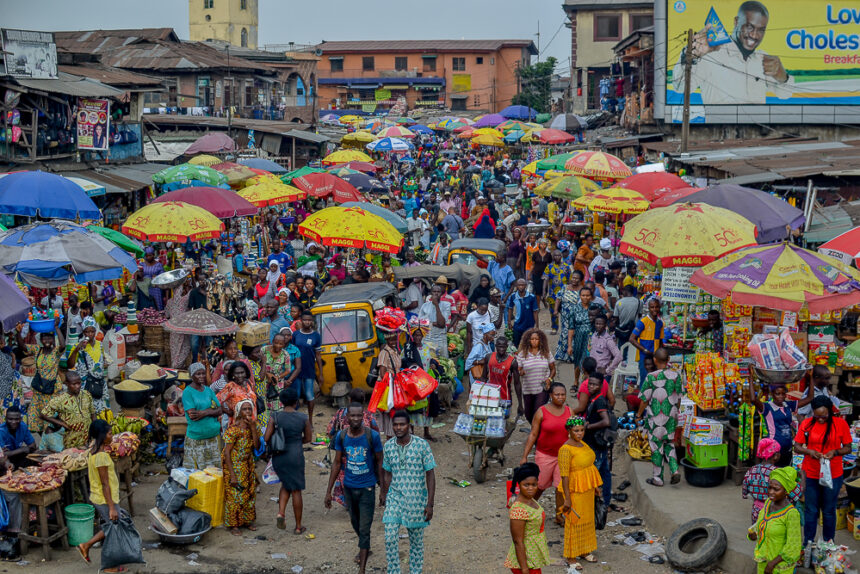Summary by Geopolist | Istanbul Center for Geopolitics:
The ISPI publication “Nigeria: The Costs of Fiscal Profligacy” by Rafiq Raji examines Nigeria’s fiscal challenges, particularly focusing on the detrimental effects of fiscal irresponsibility. The analysis highlights the following key points:
- Unsustainable Borrowing: Nigeria’s government has engaged in extensive borrowing, both domestically and externally, which has led to a significant debt burden. This borrowing has often been used to fund populist policies and short-term electoral promises rather than long-term investments in infrastructure and economic growth.
- Off-Budget Financing: Many state governments in Nigeria have resorted to off-budget borrowing, which is not reflected in official financial statements. This practice conceals the true extent of the debt and undermines fiscal transparency and accountability.
- Impact on Macroeconomic Stability: The fiscal irresponsibility at both federal and state levels poses a significant risk to Nigeria’s macroeconomic stability. The high level of debt and the associated interest payments crowd out essential spending on infrastructure, education, and healthcare.
- Institutional Weaknesses: There are significant weaknesses in institutional checks and balances meant to ensure fiscal discipline. The legislature, responsible for oversight, often fails to hold the government accountable due to political considerations. Similarly, audit institutions like the Comptroller and Auditor General (CAG) are ineffective in enforcing transparency.
- Recommendations: The report suggests amending the Fiscal Responsibility and Budget Management (FRBM) Acts to ensure more comprehensive disclosure of liabilities. It also recommends imposing borrowing conditionalities on states and considering constitutional provisions for declaring a financial emergency to restore fiscal stability.
These points underscore the urgent need for Nigeria to adopt more prudent fiscal policies and enhance institutional mechanisms to manage public finances effectively. Read the full analysis below.
Unrestrained public spending is compounding fiscal woes in the Nigerian economy, with the outlook pointing to further deterioration. Crude oil production continues to shrink and economic hardships trigger emergency stimulus measures by the authorities to forestall mounting social costs. Widespread insecurity, paired with unprecedented kleptocratic politics, are undermining the already diminished state capacity and require urgent remediation. Significant cuts to public spending, external financial assistance and continued economic reforms are imperatives.
Figure 1

Source: Haver Analytics, Central Bank of Nigeria, Author’s elaboration.
Lack of fiscal restraint is undermining much needed economic reforms
More than a year since Bola Tinubu, Nigeria’s president since late May 2023, took office the economy has deteriorated, in great part because of long overdue but hard-biting economic reforms, which have been in fits and starts, as the administration meanders through a delicate balance between economic necessity and political expediency. The economic reforms being pursued by the Tinubu administration are mostly unavoidable given the declining hard currency earnings from crude oil exports that are hugely constraining public spending. However, the authorities have not shown fiscal restraint: with a cabinet of forty-five ministers, and about as much presidential advisers and assistants, the gigantic state machinery does not seem to be aligned with priorities of fiscal accountability, fuelling the opinion of a lack of fiscal responsibility amid purported economic reforms.
Figure 2

Source: Debt Management Office, National Bureau of Statistics.
*relative to previous full-year GDP.
With inflation rising, the Central Bank of Nigeria (CBN) has been tightening monetary policy with interest rate hikes and parking more bank reserves. As the CBN is not independent, fiscal dominance has been weighing on these efforts, as evidence of renewed money printing shows (see Figure 1). The CBN raised its monetary policy rate to 26.25 percent in late May 2024, which is still a negative real interest rate, as the annual consumer inflation rate was 34 percent in the same month. Thus, additional increases in the rate of interest are expected in the second half of the year. This is due to several factors. Firstly, economic growth will remain tepid over the medium term, growing by about 3 percent on average in 2024-26, with little change compared to 2021-23. This will be in part due to less investments in the private sector owing to expensive credit. Secondly, public spending will keep growing as the central bank has resumed monetary financing for the federal government’s fiscal deficits (see Figure 1). The monetised fiscal deficit stock, which peaked at N29.3trn (US$19.5bn) in May 2023, was reduced to N5trn (US$3.3bn) in July 2023, after N24.3trn (US$16.2bn) worth of past central bank overdrafts to the federal government were securitised and added to the official public debt profile. The Tinubu administration has borrowed at least N14trn (US$9.3bn) from the CBN, however, increasing the monetary financing stock to N18.8trn (US$12.5bn) as at end-2023. Official public debt of N121.7trn (US$81.1bn) in end-March 2024, which is already more than half of gross domestic product (GDP) and more than double the value of first quarter 2023 (N49.9trn, US$33.3bn), point to an increasingly constrained fiscal space, with even more deficit monetisation likely.
The perennial crisis of the oil and gas sector
At the heart of the economic crisis is the oil and gas sector, which has been slowing down due to massive theft, creaky infrastructure, and rising divestments by international oil companies. Fuel shortages remain persistent, although the newly built 650,000 barrels per day Dangote crude oil refinery will be able to meet domestic fuel demand when it fully comes on stream. However, this might not be achieved until late 2025, at least, but may take till 2027. Electricity remains short, with the generation of 4 gigawatts of power barely possible most times, when demand is ten times as much, and is largely met with standby fossil-fuel generators, and incrementally with solar-powered batteries as well. The Tinubu administration has decentralised the electricity grid to enable more power generation and investment in the sector and allowed discriminatory increases in electricity tariffs for premium consumers to make them more cost-reflective. But these measures will take years to yield results.
The central government has been using its share of crude oil production by international oil companies as collateral for exorbitantly priced hard currency loans and barter trades for fuel imports, leaving it with fewer barrels of oil for revenue and foreign exchange reserves. Pressed for hard currency, the authorities are desperately seeking foreign loans, even at higher interest charges, such as the US$3.3bn loan granted by the African Export-Import Bank (Afreximbank) in late 2023, which is backed with future barrels of crude oil four times worth as much. The central government also took a US$2.25bn loan from the World Bank in mid-June 2024, and may issue about as much in Eurobonds in late 2024 to early 2025. However, these external loans will barely be enough to meet the hard currency needs of the authorities. NNPC Limited, the state oil firm, owed international oil traders at least US$6bn in early July 2024, for instance, as it scrambles to meet overdue payments on fuel imports. Even with less and less crude oil barrels available to NNPCL to exchange for imported fuel products, the state oil firm was seeking a new oil-backed loan of at least US$2bn in mid-2024. Therefore, episodes of fuel scarcity and higher fuel prices will be inevitable over the remainder of 2024 to late 2025, when perhaps the Dangote oil refinery will be sufficiently on stream to meet local fuel demand in full.
Socioeconomic costs compounding, as kleptocratic politics test citizens’ patience
63 percent of Nigerians are multi-dimensionally poor, with a higher rate of 72 percent in rural areas, compared to 42 percent in urban areas, according to a survey by the national statistics bureau in 2022. The poverty rate will rise further in 2024-25, after it rose to 46 percent in 2023, from 40 percent in 2018, according to World Bank data. As youth unemployment has skyrocketed, young Nigerians have become even more desperate, seeking every chance they get to leave the country for greener pastures abroad, which is becoming increasingly difficult to do, as developed countries become more stringent on irregular migration. Those with limited choices are increasingly resorting to crime, especially kidnappings, with unprecedented brutality to victims becoming scaringly common.
Figure 3

Source: NBS, Author’s elaboration.
The Tinubu administration announced a N2trn (US$1.3bn) economic stimulus programme in early July 2024 to ease the burden of the cost of living crisis, mainly through cash transfers, assistance with agricultural inputs for farmers and construction projects aimed at boosting the economy till the end of 2024. The authorities are also negotiating with labour unions to raise the minimum wage to adapt to the new economic reality. With fewer Nigerians able to make ends meet, businesses are experiencing depressed custom for their goods and services. Firms dependent on imports for manufacturing, especially western multinationals, are unsurprisingly leaving the country, with cost-savvy eastern ones taking their place, as they have proved better able to leverage on efficiencies from backward integrating their operations.
Moreover, 25 million Nigerians, about 13 percent of the population, are food-insecure, according to the International Monetary Fund, with many more expected to experience hunger before end-2024, as the country battles a growing food crisis. Food is expensive, as fewer farmers are able to cultivate their crops, and insecurity persists across the agricultural belt of northern and central Nigeria. Structural constraints on food production, especially rising insecurity from banditry, kidnappings and terrorism, are becoming entrenched. Food inflation rose by 41 percent over the past year in May 2024, with the outlook suggesting further acceleration is afoot. With the government’s grain silos empty, the authorities have been forced to allow food imports over the short term to reduce food prices. A focus on enabling more local food production, while easing the import of key agricultural inputs like fertiliser and herbicides, would be better solutions in the longer term.
In the meanwhile, low confidence in the judiciary and anger on impunity and corruption increase collective despair. At a time of great economic stress, excessive spending for foreign travels by government officials with big entourages, and other extravagant public expenses, are fuelling rising disillusion among citizens, especially young Nigerians. Massive cuts to public spending are a prerequisite for getting the economy back on track, which the Tinubu administration appears reluctant to do, with announced measures thus far largely insufficient. External financing is also desperately needed to ease balance of payment pressures and reduce currency volatility.
By: Rafiq Raji
Source: ISPI







